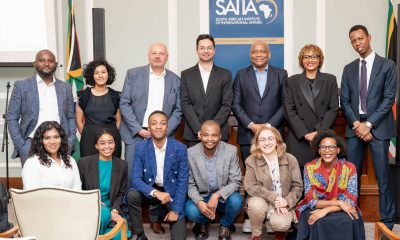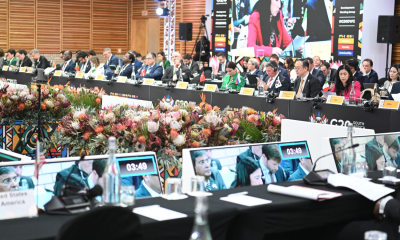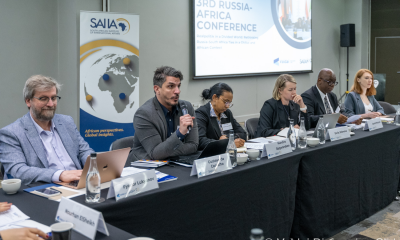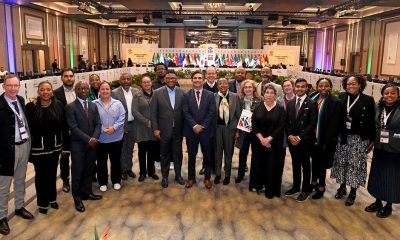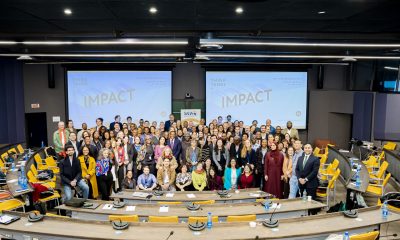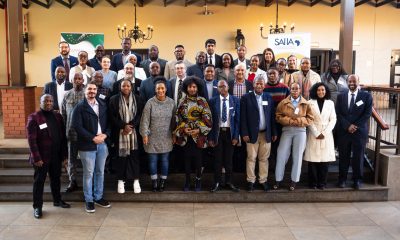Pakistan occupies a rather peripheral place, in the South African mind, to its much larger neighbour India, an old traditional friend of this country. In an effort to bring Pakistan more into SA’s focus, the SA Institute of International Affairs (SAIIA) held a seminar on the country last week in Johannesburg. It focussed on the topical issues of Pakistan’s role in the war against terrorism, its difficult relations with India and its relations with SA, including a possible role for Pretoria in helping to resolve Pakistan’s dispute with India over Kashmir, possibly the main cause of tensions between the neighbours.
The Pakistan and Indian participants, unsurprisingly, differed pretty diametrically on all these issues. Pakistanis largely saw the militant Islamic extemism in their northwestern areas as something which had spilled across the border from Afghanistan and which they had been fighting since long before 9/11 – contrary to the conventional view that it was only the US which had pressured them to do so after that..
The Indians, however, tended to see the Taliban-extremism of Afghanistan as something which “the whisky-swilling generals” of Pakistan, as one of them called them, had deliberately stoked, partly to justify their hold on power and their lucratic exploitation of the heroin and opium cross-border trade.
Likewise, they saw the Pakistani military’s grip on power as the chief source of regional instability..
The Pakistanis instead attributed the latter squarely to what they saw as India’s thwarting of the nationalist aspirations of the Kashmir people.
These different understandings of the underlying problems also influenced very different views on a possible role for SA in resolving tensions between them. The Pakistanis mostly thought SA could play a role, likening the Kashmiri struggle for independence to SA’s liberation struggle, an experience which could help inform a possible SA mediation.
The Indians – who have made it very clear that Kashmir can only be resolved directly between them and Pakistan – had a much limited notion of a role for SA, at most drawing on their own experience of democracy, to persuade Pakistan that democratic rather than military rule was the only way to stability –internal and regional – and development.
An Indian participant noted that the Kashmiri and other issues between the two countries had virtually terminated normal commerce between the two countries,to the detriment of both, especially much smaller Pakistan itself.
He rather annoyed the Pakistanis by suggesting that they stop “obsessing” about Kashmir, that they leave it alone to sort itself out (somehow) and normalise trade and other relations with India in the meantime.
That suggestion, though provocative, had an interesting echo across the other side of the continent in Cairo this week at a seminar organised by the Johannesburg-based Brenthurst Foundation and Germany’s Konrad Adenauer Foundation on the lessons which other countries could offer Africa on how to benefit from globalisation.
Ashfaque Khan, a senior Pakistani government official, pointed out that his county had only really begun reaping the benefits of globalisation after President (and General) Pervez Musharraf seized power in a military coup in 1999.
That was because Musharraf, forcefully and efficiently, implemented the necessary policies of opening up and integrating Pakistan into the global economy which civilian governments had been unable to implement.
The economy was now growing at 6,8 percent, compared to 4 or less before. The Cairo conference was most notable for revealing just how many other countries around the world, apart from Pakistan, which had managed to sustain quite high growth despite conflict or other political tensions.
So the Indians at the SAIIA conference were both wrong and right. Right to suggest that the Kashmiri tensions need not – at least in commercial terms – impede normal commercial relations between Pakistan and India.
Wrong, however, to suggest that the military government in Pakistan was an inherent impediment to the country’s development.
This is also a lesson for Africa but that will be the subject of another column.
By Peter Fabricius
Diplomatic Bag column
17 November 2006, The Star


